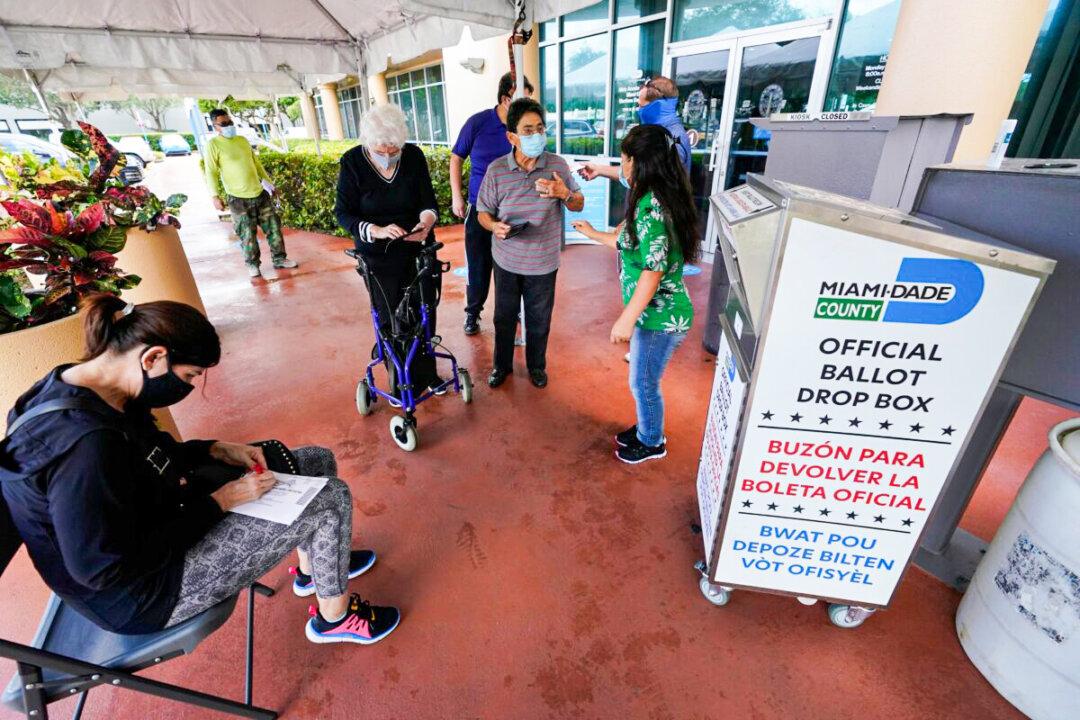On March 31, a federal judge ruled Florida’s new election law, SB 90, to be unconstitutional.
As The Epoch Times reported May 1, 2021, the Republican-controlled state Senate previously approved SB 90 (pdf), which overhauled Florida election law ahead of the 2022 midterm elections and 2024 presidential election.





